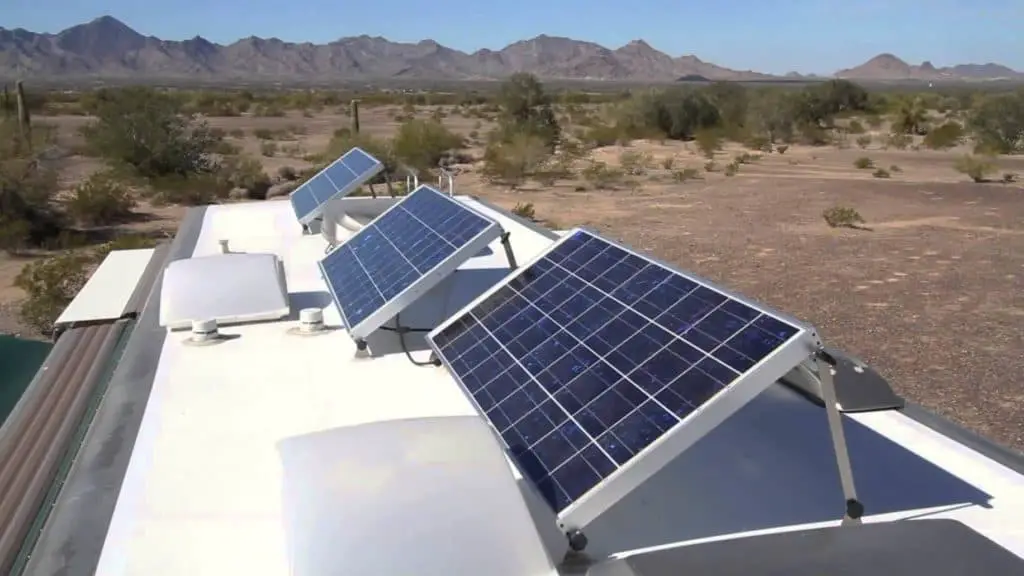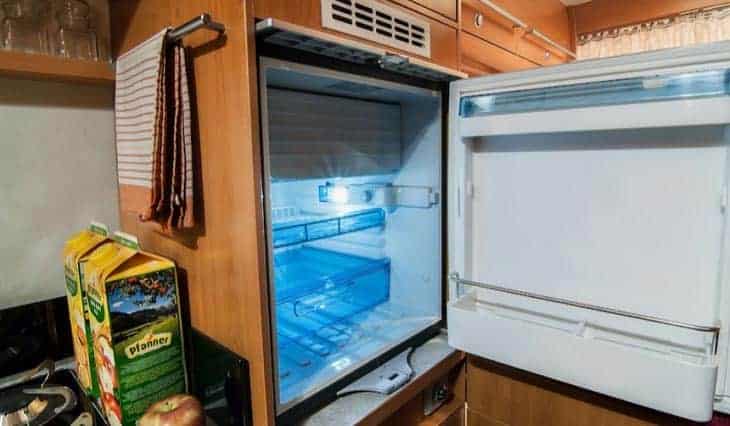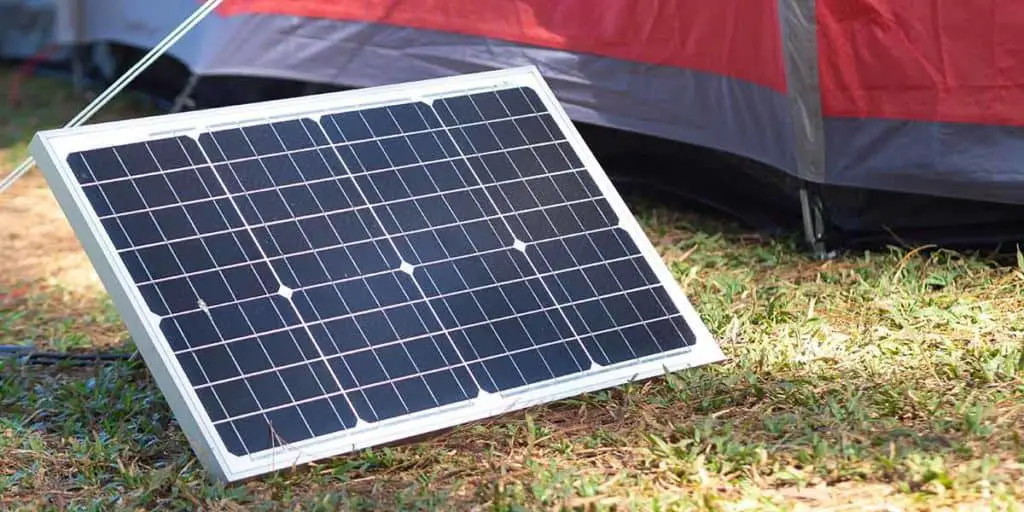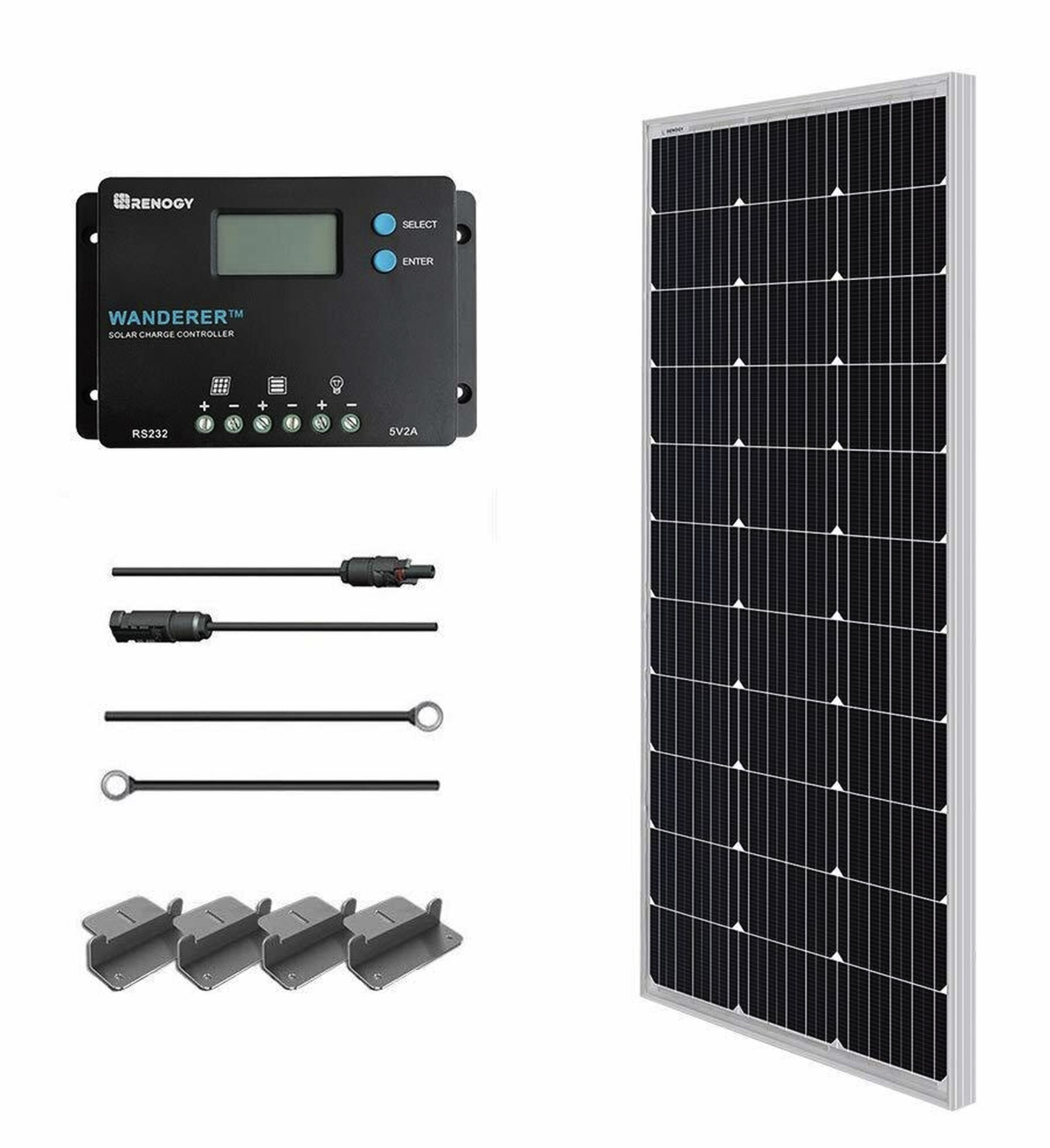Hi-van is supported by its audience. When you purchase using our links, we may earn an affiliate commission (no added cost to you). Learn more
A lot of people truly enjoy living their everyday lives on their own RVs. New places, new people, new experiences, who don’t want that! However, while there are a lot of good things about living in the RV, there’s also a lot of challenges, just like the money you have to spend in powering up your van!
While gas-powered generators and inverters are the most popular way on how you can power up your mobile home, there’s actually a cheaper alternative: the use of solar panels!
We know what you’re thinking: it’s too expensive to install! While it is true that
We’ve come up with the basic information on how you can use a
Basic Information About Solar Panels to run a Fridge
Related Guide: Can a Solar Panel Run a Camping Fridge?
Just like what we all know, the size of the
- What appliance would be connected to the
solar panel ? - How many appliances?
- How many voltages do these appliances need?
- Would they be used every day or only on when needed?
- How many hours are they expected to run in a day?
- If solar panels are unavailable, say on the occasion of bad weather, should they be connected to an alternative power source?

Pretty meticulous, right? Well, the truth is, when talking about a power source for your appliance in your RV, especially that of an alternative one, you should really be detailed-oriented. Not only would it allow you to make the most out of your solar panels, but most importantly, bear in mind that people living in RVs don’t have the reliable maintenance and troubleshooting services that power source companies give to regular homeowners. You wouldn’t want to do regular repair and troubleshooting tasks for your RV power source, right? And surely, you wouldn’t want to damage your expensive appliance. This is why you really need to determine the answers to these questions before proceeding with the installation of your solar panels.
Powering Up a 12v Fridge with Solar Panel
Related Guide: How do solar panels work on a van? (an in depth look)

We would take a 12v fridge as an example of an appliance that you would be powering up through solar panels. Why a 12v fridge? First and foremost, 12v is the most common voltage of RV appliances since they could easily be powered up with a gas-powered generator or an inverter connected to your RV battery. It’s also the best pick when you’re thinking of using solar panels. On the other hand, a refrigerator is probably the most sensitive appliance even in regular households. Not only should it be continuously hooked up to a power supply, but one power surge or fluctuation could already damage a fridge. Aside from that, you would have to connect it to a reliable power source, or else you’re at risk of spoiling all of your food supply!
In short, if you have succeeded in powering up your fridge through a
In order to correctly and efficiently connect your 12v fridge to a
Related Articles: Top 5 Campervan Fridge Freezer Combos For Van Life
Minimum Solar Panel Requirement

For a 12v fridge that is expected to run for 24 hours, the minimum
100 watts
- Standard Power: 100wp
- Tolerance: 0-+3%
- Short Circuit Current (ISC): 5.86A
- Open Circuit Voltage (Voc): 22.1V
- Maximum Power Current (Imp): 5.52A
- Maximum Power Voltage (Vmp): 18.1V
- Maximum System Voltage: 1000v
- Number of Cells: 36 pcs
- Maximum Fuse: 15A
Since it is the minimum requirement, in order to properly power up your 12v fridge with a 100 watts
On the other hand, if you know for yourself that the weather around your area is unforgivable, you could still stick with your 100 watts
Why would you need a 24v or 48v battery for a 12v fridge? Since you’re in the middle of unforgivable weather, you’re expected to make the most out of any sunny afternoon and stock up as much power as you can in your battery from your
The Renogy 100W Solar Power Starter Kit is perfect for new customers wanting to get a start in solar. The Starter Kit is great for off-grid applications, such as RVs, trailers, boats, sheds, and cabins.
A great starting point is this 100W Starter Kit from Renogy. It’s perfect for starting out and it can totally handle a 12v fridge.
100W Solar Panels Comparison
In this youtube video, GreatScott! showed a comparison between a store-bought and a DIY
See? Using a
So what are you waiting for? Lessen your use of your gas-powered generator and RV batteries and save more money with the use of solar panels! Maybe we have forgotten to mention it… but it could save Mother Earth, too!

